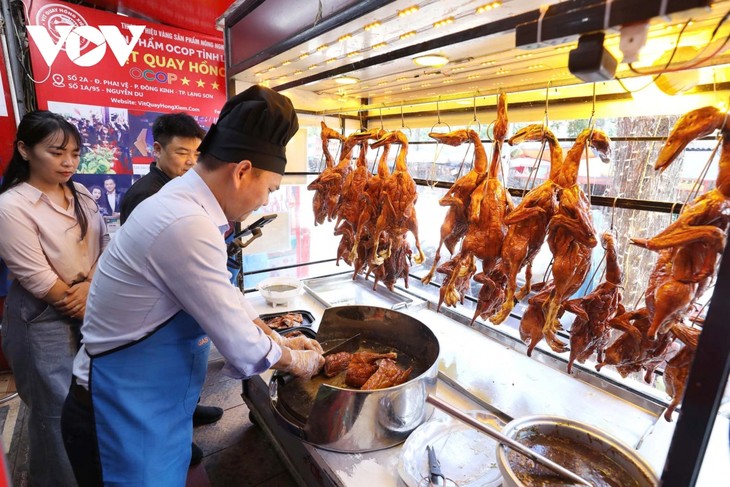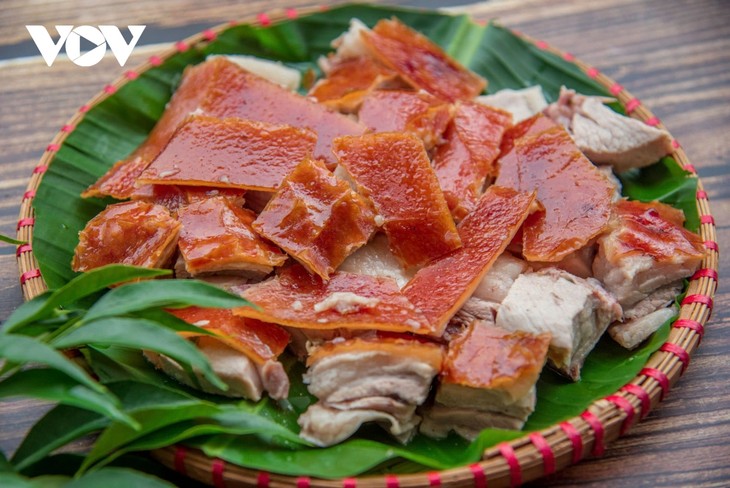(VOVWORLD) - Lang Son province not only captivates visitors with its breathtaking landscapes and rich cultural heritage but also delights with a diverse array of traditional dishes. Culinary tourism, or "Foodtour," is becoming a fresh and exciting direction for the province.
 Lang Son province is promoting food tour as a local tourism specialty Lang Son province is promoting food tour as a local tourism specialty |
When visiting Lang Son, no foodie should miss the chance to savor its distinctive specialties. From crispy roasted pork to roasted duck infused with mac mat leaves, or the tangy sour pho, mugwort cakes, and steamed rice rolls with egg, each dish reflects the unique culinary traditions of the region.
The local flavors are further enhanced by a variety of spices such as chili bamboo shoots and wild lemons, offering unforgettable taste experiences.
Nguyen Thi Thanh, a visitor from Hanoi, is excited over Lang Son's cuisine: "I find Lang Son’s cuisine incredibly delicious, suitable for tourists from all regions. Many even buy it as gifts. The roasted duck here has a one-of-a-kind flavor—simply the best I've ever tasted. And the roasted pork is equally impressive, with a perfect balance of flavors that anyone would enjoy."
 Roasted pork is a Lang Son specialty Roasted pork is a Lang Son specialty |
Lang Son has launched a Foodtour program as a new tourism product. The local government has collaborated with culinary experts to identify top restaurants and food shops for the Foodtour, while providing training in food hygiene and guest service, and creating a Foodtour map.
Tran Thi Bich Hanh, Deputy Director of the provincial Center for Investment, Trade, and Tourism Promotion, said: "The Lang Son Foodtour will showcase the essence of the local cuisine, already acknowledged by domestic and foreign tourists. We’ve been promoting Lang Son's culinary heritage through the media and are planning to introduce it in Japan, Australia, and New Zealand. In the future, we will invite celebrities, influencers, and popular Tiktokers to try, review, and help spread the word about Lang Son cuisine."
In recent years, Lang Son has invited artisans to perform cooking demonstrations at major events, provided training to local businesses, and promoted the Foodtour model in an effort to make tourism a flagship economic sector of the northern border province.